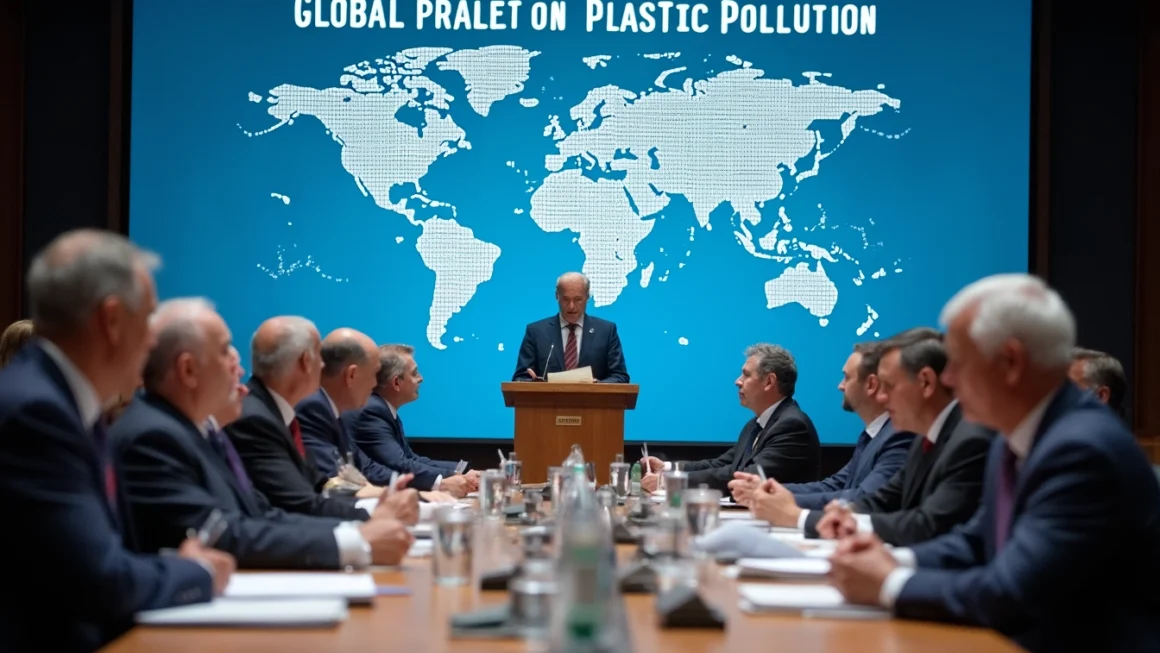The Urgency of Addressing Global Plastic Pollution
Table of Contents
As the world grapples with the ever-growing issue of plastic pollution, a stark reality has come to light: our planet may not be able to withstand another decade of inaction. The United Nations’ recent push for a global treaty to end plastic waste underscores the critical nature of this environmental crisis.
The Scale of the Problem
Plastic pollution has reached unprecedented levels, with millions of tons of plastic waste entering our oceans and ecosystems each year. This pollution not only harms marine life but also poses significant risks to human health and the global economy. The sheer scale of plastic production and disposal has outpaced our ability to manage it effectively.
The Call for a Global Treaty
Recognizing the urgency of the situation, the UN is advocating for a legally binding global treaty to address plastic pollution. This initiative aims to bring together nations worldwide to implement comprehensive measures for reducing plastic waste and promoting sustainable alternatives.
Key Objectives of the Proposed Treaty
- Reducing plastic production and consumption
- Improving waste management and recycling infrastructure
- Promoting eco-friendly alternatives to single-use plastics
- Implementing stricter regulations on plastic packaging
- Encouraging innovation in sustainable materials
The Challenges Ahead
While the need for action is clear, several challenges lie ahead in crafting and implementing an effective global treaty:
1. Balancing Economic Interests
Many industries rely heavily on plastic production and packaging. Finding a balance between environmental protection and economic interests will be crucial for gaining widespread support.
2. Diverse National Priorities
Different countries have varying levels of plastic consumption and waste management capabilities. Crafting a treaty that accommodates these differences while maintaining effectiveness will be challenging.
3. Implementation and Enforcement
Ensuring compliance with the treaty across all nations will require robust monitoring and enforcement mechanisms. Innovative automation solutions could play a crucial role in tracking and reporting progress.
4. Technological and Infrastructure Gaps
Many countries lack the necessary infrastructure for effective waste management and recycling. Addressing these gaps will be essential for the treaty’s success.
The Role of Individuals and Businesses
While a global treaty is crucial, individual actions and corporate responsibility play vital roles in combating plastic pollution:
Consumer Choices
Individuals can make a significant impact by choosing eco-friendly products, reducing single-use plastic consumption, and properly disposing of waste.
Corporate Responsibility
Businesses can lead the way by adopting sustainable packaging practices, investing in recycling infrastructure, and developing innovative alternatives to plastic.
The Path Forward
As negotiations for the global treaty progress, it’s clear that time is of the essence. The next decade will be critical in determining whether we can effectively address the plastic pollution crisis. Key steps include:
- Accelerating research and development of sustainable materials
- Strengthening international cooperation on waste management
- Implementing stricter regulations on plastic production and disposal
- Investing in education and awareness campaigns
- Supporting developing nations in building necessary infrastructure
Conclusion
The world stands at a crucial juncture in the fight against plastic pollution. The proposed UN global treaty represents a significant step towards addressing this environmental crisis. However, its success will depend on swift action, international cooperation, and a collective commitment to change. As we move forward, it’s clear that every nation, business, and individual has a role to play in creating a more sustainable future free from the scourge of plastic waste.
The next ten years will be pivotal. By taking decisive action now, we can hope to turn the tide on plastic pollution and preserve our planet for future generations. The time for talk is over; the time for meaningful, global action is now.




